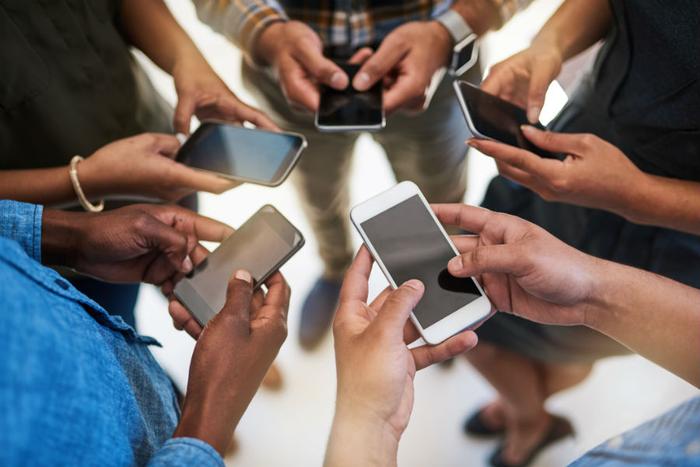Smartphone Addiction
The mental health of those that regularly use smartphones and other handheld devices is currently under debate. Is the constant exposure to these devices having a detrimental effect on their mental health? Are the current studies simply noise that should not be trusted? In this article we will explore some of the possible consequences of the overuse of phones and what researchers are saying about their mental health consequences.
The most cited study out there directly conflicts with the above belief. A UCLA School of Public Health study by psychologists Lisa K. Tsai and Dong Y. Sun examined how often patients with an anxiety disorder, pre-existing phobia or depression used their phone. The results reveal that there is no significant relationship between smartphone use and increased levels of psychological disorders. However, it did find a significant correlation between excessive smartphone use and depression. The researchers argue that the relationship they found between depression and excessive use may be due to the fact that depressed people tend to be more impulsive while being in contact with others, while the connection they found between smartphone addiction and anxiety was the result of poor communication among sufferers.
Although these studies can suggest that there may be a relationship between smartphone addiction and mental health issues, these findings are still inconclusive. Researchers are not exactly sure why the relationship they found exists, but it could be due to a lack of functional impairment among smart phone addicts. Functional impairment refers to problems with using a phone’s basic functions, such as texting and browsing the internet without being present at the device. This could very well explain why there is a relationship between smartphone addiction and mental health issues, but they cannot state definitively that addiction leads to functional impairment. This is because many individuals who are addicted to cell phones also have issues with memory and other cognitive skills that could lead to functional impairment in many cases.
Those who are excessively fond of smartphones, also have other problems associated with this form of technology. The two most common are depression and anxiety. It seems like those who are heavily addicted to cell phones also suffer from anxiety and depressive disorders, since smartphone use tends to bring about feelings of loneliness and frustration. While it is difficult to determine how and why depression and anxiety become associated with smartphone use, researchers are not altogether surprised by the results. They have noticed that when an individual with depression or anxiety suffers from withdrawal symptoms, they do typically turn to their cell phone for comfort and help.
It is also possible that the association between smartphone addiction and mental health issues is caused by changes in the way we use our phones. Some users prefer to read books or newspapers on their smartphones, while others may be more interested in streaming music or watching videos. This may have caused the increased correlation between these two mental health disorders. In addition, it has also been noticed that people who frequently use entertainment-based apps (such as apps that let you play games) tend to have greater difficulty when it comes to concentration and willpower. Since these apps require a great deal of concentration and willpower to keep up, it makes sense that smartphone addicts will have greater difficulties keeping their compulsive behavior under control.

The relationship between smartphone addiction and mental health issues may also be caused by the increased frequency of use. For instance, those who regularly read books on their smartphones will be exposed to the act of reading in many different settings. For them, reading could come across as a source of comfort and cheerfulness, which could cause a decrease in anxiety and depression. This would trigger a vicious cycle, wherein the increase in depression and anxiety could cause the individual to crave for smartphones with more frequency in order to provide themselves with comfort and cheerfulness.
In cases where the user has developed an addiction, they may also experience withdrawal symptoms. These symptoms can take several forms and may manifest themselves in different ways. When it comes to anxiety and depression, for instance, the individual may experience intense headaches, nausea, and irritability. However, when it comes to overuse, the user may suffer from insomnia, restlessness, and frequent yawning. In other words, there is a great possibility that smartphone addiction could lead to more serious issues like depression and anxiety, if left untreated.
This is not to say that smartphone addiction is a mental disorder in itself. Of course, the use of these gadgets has provided individuals with so many conveniences. But the constant exposure to different apps that do not necessarily require the user to exert willpower can lead to an addiction in the form of excessive internet use. For instance, those who regularly access their smartphones while watching television or surfing the internet will develop the habit of checking their phones every few minutes in order to ensure that they did not miss out on any important messages or calls. This becomes problematic when one considers the fact that there is a chance that the user may miss out on important calls or messages due to excessive internet use.






